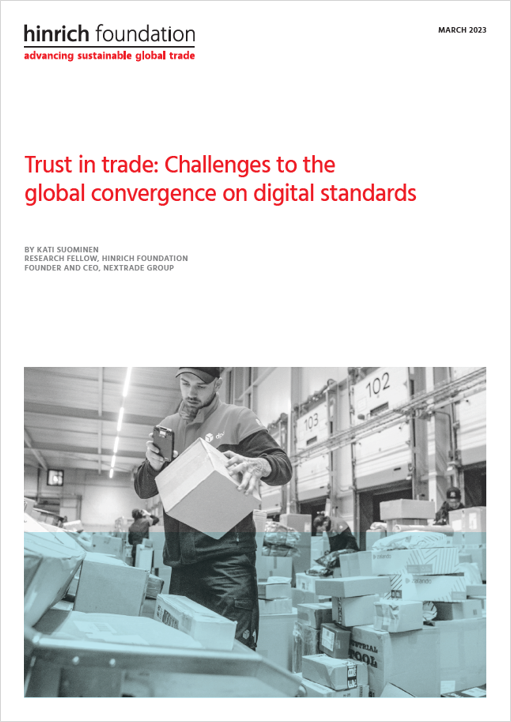Digital trade
Trust in trade: Challenges to the global convergence on digital standards
Published 28 March 2023
The trade costs of recent global supply chain disruptions are compounded by the persistence of arcane, paper-based trade documentation and lack of interoperability among them. But the adoption of digital standards over the past two decades in the trade community is slow at best, as corporations face uncertainty and a lack of adequate policy support.
Imagine if every train trip in Europe required a transfer at national borders because of the different widths of national railway gauges. Imagine the wait times at airport immigration if every airline passenger’s passport was of different size and shape and contained different credentials. Or if each country had a separate set of standards in designing computer ports. These types of challenges are exceedingly rare today because of standards developed during the past two centuries, which have enabled the global exchange of goods, people, and information. However, standardization remains slow in one key area of international trade: the digitization of documents.
This paper by Kati Suominen, Research Fellow of the Hinrich Foundation and Founder and CEO of Nextrade Group, highlights the imperative of digitizing trade documentation for cutting costs, improving consumer welfare, and lowering barriers to market entry. Supported by scores of case studies, the brief begins with an overview of the pain points in traditional paper-based trade before moving on to discuss the benefits of standardizing and digitizing trade paperwork. Suominen also examines the state of play on standards and their adoption in various jurisdictions, as well as the challenges and opportunities policymakers face.
© The Hinrich Foundation. See our website Terms and conditions for our copyright and reprint policy. All statements of fact and the views, conclusions and recommendations expressed in this publication are the sole responsibility of the author(s).







